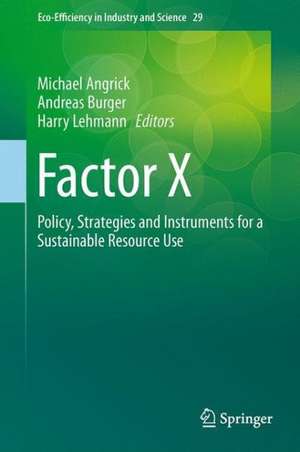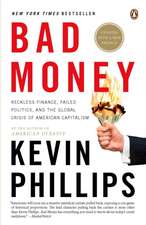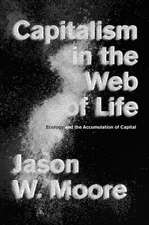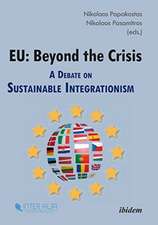Factor X: Policy, Strategies and Instruments for a Sustainable Resource Use: Eco-Efficiency in Industry and Science, cartea 29
Editat de Michael Angrick, Andreas Burger, Harry Lehmannen Limba Engleză Hardback – 11 dec 2013
| Toate formatele și edițiile | Preț | Express |
|---|---|---|
| Paperback (2) | 563.71 lei 38-44 zile | |
| SPRINGER NETHERLANDS – 18 sep 2016 | 563.71 lei 38-44 zile | |
| SPRINGER NETHERLANDS – 8 feb 2015 | 640.55 lei 43-57 zile | |
| Hardback (2) | 648.42 lei 43-57 zile | |
| SPRINGER NETHERLANDS – 11 dec 2013 | 648.42 lei 43-57 zile | |
| SPRINGER NETHERLANDS – 2 feb 2013 | 651.51 lei 43-57 zile |
Din seria Eco-Efficiency in Industry and Science
- 9%
 Preț: 901.53 lei
Preț: 901.53 lei - 18%
 Preț: 951.29 lei
Preț: 951.29 lei - 15%
 Preț: 640.24 lei
Preț: 640.24 lei - 15%
 Preț: 654.77 lei
Preț: 654.77 lei - 15%
 Preț: 648.42 lei
Preț: 648.42 lei -
 Preț: 391.61 lei
Preț: 391.61 lei - 15%
 Preț: 642.51 lei
Preț: 642.51 lei - 15%
 Preț: 643.34 lei
Preț: 643.34 lei - 18%
 Preț: 957.62 lei
Preț: 957.62 lei - 18%
 Preț: 953.35 lei
Preț: 953.35 lei - 18%
 Preț: 1238.74 lei
Preț: 1238.74 lei - 18%
 Preț: 1224.68 lei
Preț: 1224.68 lei - 18%
 Preț: 963.15 lei
Preț: 963.15 lei - 18%
 Preț: 2115.07 lei
Preț: 2115.07 lei - 18%
 Preț: 1388.53 lei
Preț: 1388.53 lei - 18%
 Preț: 1855.88 lei
Preț: 1855.88 lei - 18%
 Preț: 1234.94 lei
Preț: 1234.94 lei - 15%
 Preț: 643.00 lei
Preț: 643.00 lei - 15%
 Preț: 647.40 lei
Preț: 647.40 lei - 18%
 Preț: 1222.01 lei
Preț: 1222.01 lei - 15%
 Preț: 637.59 lei
Preț: 637.59 lei - 15%
 Preț: 646.62 lei
Preț: 646.62 lei - 15%
 Preț: 645.79 lei
Preț: 645.79 lei - 20%
 Preț: 590.95 lei
Preț: 590.95 lei
Preț: 648.42 lei
Preț vechi: 762.85 lei
-15% Nou
Puncte Express: 973
Preț estimativ în valută:
124.09€ • 129.07$ • 102.44£
124.09€ • 129.07$ • 102.44£
Carte tipărită la comandă
Livrare economică 14-28 aprilie
Preluare comenzi: 021 569.72.76
Specificații
ISBN-13: 9789400757059
ISBN-10: 9400757050
Pagini: 332
Ilustrații: XVIII, 311 p. 61 illus., 53 illus. in color.
Dimensiuni: 155 x 235 x 23 mm
Greutate: 0.64 kg
Ediția:2014
Editura: SPRINGER NETHERLANDS
Colecția Springer
Seria Eco-Efficiency in Industry and Science
Locul publicării:Dordrecht, Netherlands
ISBN-10: 9400757050
Pagini: 332
Ilustrații: XVIII, 311 p. 61 illus., 53 illus. in color.
Dimensiuni: 155 x 235 x 23 mm
Greutate: 0.64 kg
Ediția:2014
Editura: SPRINGER NETHERLANDS
Colecția Springer
Seria Eco-Efficiency in Industry and Science
Locul publicării:Dordrecht, Netherlands
Public țintă
Professional/practitionerCuprins
Introduction.- PART I: Limits to Resource Use.- 1. The Limits of Resource Use and their Economic and Policy Implications.- 2. The Availability of Fossil Energy Resources.- PART II: Goals and Potentials for a Sustainable Use of Resources.- 3. Targets for Global Resource Consumption.- 4. Sustainable Land Use – Example: Land take for Settlement and Transport in Germany.- 5. The Need for Decarbonising Our Economy.- 6. Strategies for Enhancing Resource Efficiency.- 7. Macroeconomic Impacts of Efficient Resource Use.- PART III: Strategies and Policies for a Sustainable Use of Resources.- 8. The Challenge Of The Whole: Creating System Policies To Tackle Sustainability.- 9. Changing the Priorities: From Labour Productivity to the Efficiency in the Use of Resources.- 10. Establishing and Strengthening Markets for Resource Efficient Products and Services.- 11. Business Models for Material Efficiency Services.- 12. Requirements of an International Natural Resource Policy.- 13. Innovations for a Sustainable Resource Use – Reflections and Proposals.- PART IV: Proposals for Implementation.- 14. Reducing Resource Consumption – A Proposal for Global Resource and Environmental Policy.- 15. Towards a More Sustainable Use of Resources: A View from the World Resources Forum.- 16. From Resource Efficiency to Responsible and Dematerialized Societies.- 17. About the Need of Resource Efficiency Programs: The Editors’ View.- Index.
Textul de pe ultima copertă
As currently projected, global population growth will place increasing pressures on the environment and on Earth’s resources. Growth will be concentrated in developing countries, leading to leaps in demand for goods and services, and a paradox: although there are initiatives to decouple resource use and economic growth in mature economies, their effects could be more than offset by rapid economic growth in developing countries like China and India. Others will follow, claiming their equal right to material well- being. This will even more increase the challenge facing the industrialized countries to reduce their resource use.
The editors of Factor X explore and analyze this trajectory, predicting scarcities of non-renewable materials such as metals, limited availability of ecological capacities and shortages arising from geographic concentrations of materials. They argue that what is needed is a radical change in the ways we use nature’s resources to produce goods and services and generate well-being. The goal of saving our ecosystem demands a prompt and decisive reduction of man-induced material flows. Before 2050, they assert, we must achieve a significant decrease in consumption of resources, in the line with the idea of a factor 10 reduction target. EU-wide and country specific targets must be set, and enforced using strict, accurate measurement of consumption of materials. Their arguments are drawn from empirical evidence and observations, as well as theoretical considerations based on economic modeling and on natural science.
Factor X holds that these fundamental principles should underpin future Resources Strategies: the consumption of a resource should not exceed its regeneration and recycling rate or the rate at which all functions can be substituted; the long-term release of substances should not exceed the tolerance limit of environmental media and their capacity for assimilation; hazards and unreasonable risks for humankind and the environment due to anthropogenic influences must be avoided; the time scale of anthropogenic interference with the environment must be in a balanced relation to the response time needed by the environment in order to stabilize itself.
The book concludes by offering proposals and ideas for new national and regional policies on reducing demand and shifting toward sustainability, and concrete actions and instruments for implementing them. The editors have created a useful map on our transformation path towards a “Factor X” society.
The editors of Factor X explore and analyze this trajectory, predicting scarcities of non-renewable materials such as metals, limited availability of ecological capacities and shortages arising from geographic concentrations of materials. They argue that what is needed is a radical change in the ways we use nature’s resources to produce goods and services and generate well-being. The goal of saving our ecosystem demands a prompt and decisive reduction of man-induced material flows. Before 2050, they assert, we must achieve a significant decrease in consumption of resources, in the line with the idea of a factor 10 reduction target. EU-wide and country specific targets must be set, and enforced using strict, accurate measurement of consumption of materials. Their arguments are drawn from empirical evidence and observations, as well as theoretical considerations based on economic modeling and on natural science.
Factor X holds that these fundamental principles should underpin future Resources Strategies: the consumption of a resource should not exceed its regeneration and recycling rate or the rate at which all functions can be substituted; the long-term release of substances should not exceed the tolerance limit of environmental media and their capacity for assimilation; hazards and unreasonable risks for humankind and the environment due to anthropogenic influences must be avoided; the time scale of anthropogenic interference with the environment must be in a balanced relation to the response time needed by the environment in order to stabilize itself.
The book concludes by offering proposals and ideas for new national and regional policies on reducing demand and shifting toward sustainability, and concrete actions and instruments for implementing them. The editors have created a useful map on our transformation path towards a “Factor X” society.
Caracteristici
Thoroughly describes the coming collision as a growing, demanding population faces the depletion of earth’s natural resources Offers practical recommendations and develops proposals to improve resource efficiency Benefits researchers, policy makers and politicians working on resource efficiency and sustainable resource use
















